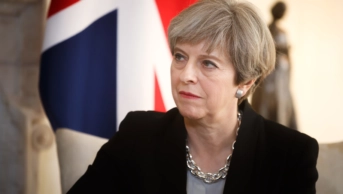
Agencja Fotograficzna Caro / Alamy
Healthcare free at the point of delivery is undoubtedly one of the UK’s greatest achievements. But this silver cloud does come with one rather frustrating grey lining — the expectation it generates in some patients that free medicines are their divine right, regardless of the circumstance. Particularly frustrating are those who complain about waiting in the prescription line for a box of ibuprofen when the 30p over-the-counter (OTC) pack is just a few feet away. The argument over whether the current prescription fee structure in England is fair will undoubtedly rumble on beyond the next election.
One Welsh health board made national headlines on 18 March 2015 when, in the words of the Daily Mail[1]
, it told patients to “Buy your own drugs”. This was, perhaps, a little misleading. In essence, Betsi Cadwaladr University Health Board has written to all of its GPs advising them to signpost patients to pharmacies where appropriate.
“Up to 20% of GP appointments are taken up by patients with common ailments,” says Berwyn Owen, Betsi Cadwaladr’s clinical director of pharmacy and medicines management. “Our intention is, first and foremost, to encourage self-care and to encourage patients to make better use of community pharmacies.”
This ‘announcement’ does not actually reflect a change to official policy, as Owen points out: “The free prescription policy released by the minister for health in Wales in 2007 aims to provide medication for free [when it] is only available with a prescription. We aren’t changing that policy — we are merely reinforcing it.”
The potential economic impact of such reinforcement is considerable. “As a health board, we are currently prescribing £4m per year of simple analgesics and hay fever treatments that are available as OTC medicines,” Owen adds. “A 2% reduction in those prescriptions would release £80,000 per year.”
Given that prescriptions are free in Wales, is there an additional burden on GPs in Wales to prescribe OTC medicines compared with their counterparts across the border? “GPs are compelled by their duty of care to prescribe medicines for their patients’ needs,” Owen says. “When a prescription charge exists, many patients offer to buy the medicines themselves if they are cheaper and available over the counter. Where prescriptions are free, this is less likely to happen.”
With government spending on health failing to keep up with the rise in the cost of medicines, commissioners are having to make difficult decisions about which medicines are being funded and which are not. Perhaps primary care organisations across the UK will need to consider following the approach being taken in North Wales.


